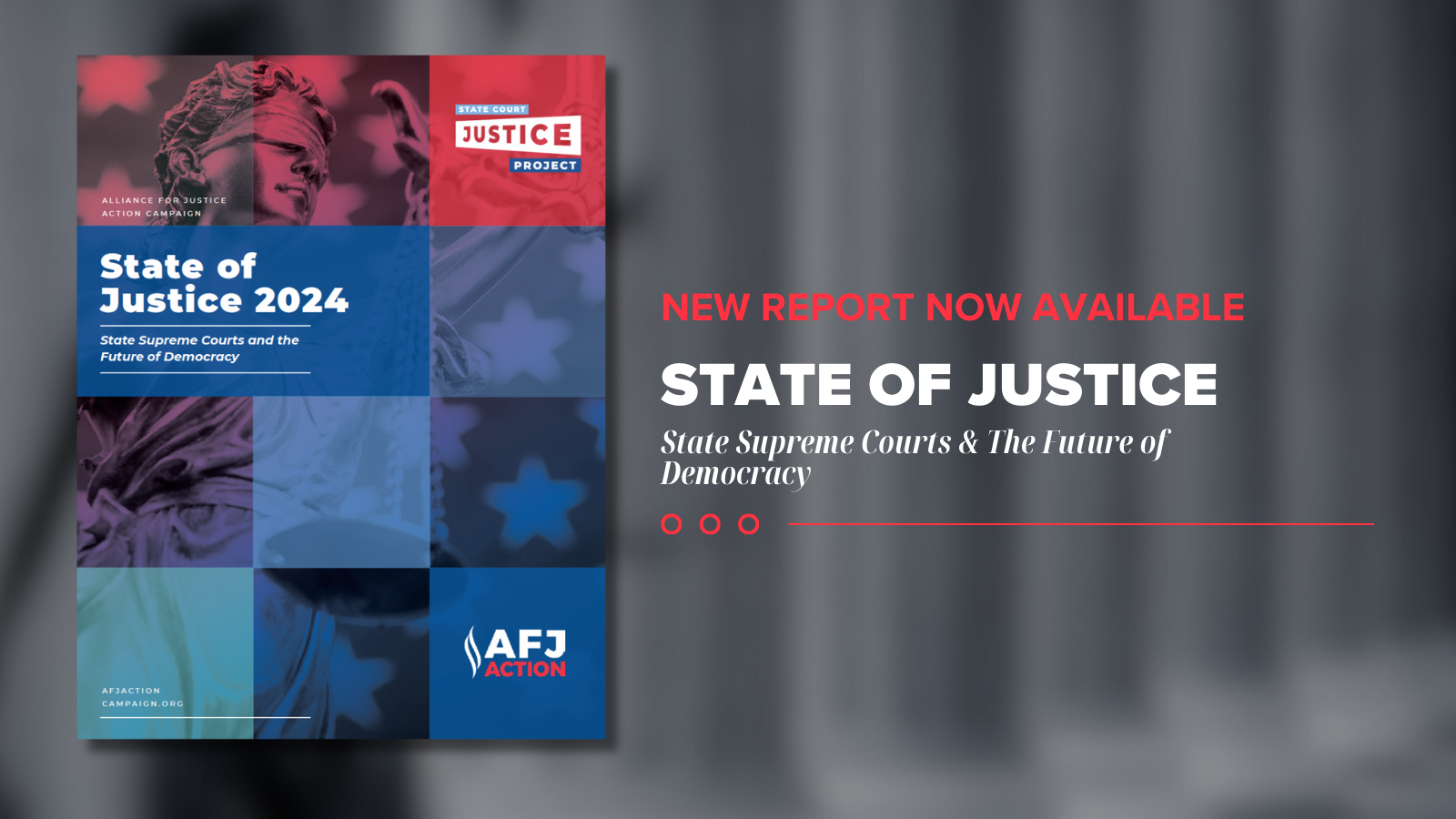State Courts Hub

State of Justice 2024
In 2024, more than half of the states will have elections or vacancies on their state supreme courts. This report delves into the current landscape of state supreme courts throughout the country as they continue to draw ever-increasing levels of attention — and outside spending — while deciding critical cases that are reshaping the nation.
State Courts Matter
State supreme courts have always played a huge role in determining our rights and freedoms, but in the wake of massive U.S. Supreme Court decisions sending issues like reproductive freedom and access to democracy back to states, their role is in the national spotlight more than ever. Our new report, "State of Justice 2024: State Supreme Courts and the Future of Democracy", highlights the increasing focus on state court elections and some of the major cases these courts are handling.
Did You Know?
Important Facts about State Courts

of all lawsuits in the US are filed in state courts.

states will hold State Supreme Court elections in 2024.

state supreme court seats are up for a vote in 2024.
- State of the State Supreme Courts Report
-
In 2024, 32 states will hold elections for at least one seat on their state’s highest court, with over 80 seats up for a vote across the country. In 2023, AFJ Action’s released first-of-its-kind State of the State Supreme Courts Report which identified the states and judges with elections in the upcoming year.
- 2023 State Supreme Court Elections
-
Pennsylvania had critical judicial elections last year. Seats for Pennsylvania’s Supreme Court, Commonwealth Court, and Superior Court were up for election in 2023. Click the link below to learn more about the stakes of the election.
- State of Justice Newsletter
-
Voters throughout the country have the critical opportunity to shape their state courts and protect their rights at the ballot box. Stay up to date on what’s happening in your state’s highest court by subscribing to State of Justice, AFJ Action’s bi-weekly newsletter on the latest happenings in state supreme courts.
Want to read our previous State of Justice newsletters?
Check out our State of Justice Archive!

